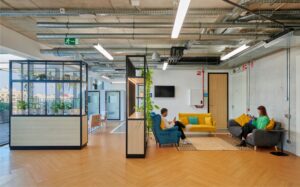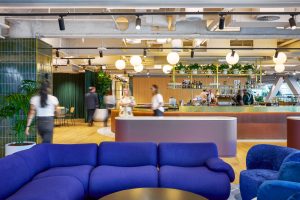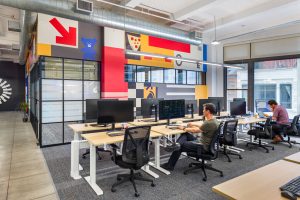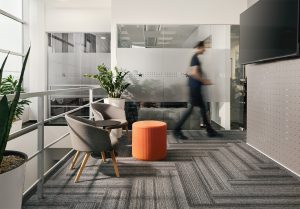Facility Management in Singapore: Best Practices for Commercial Buildings.
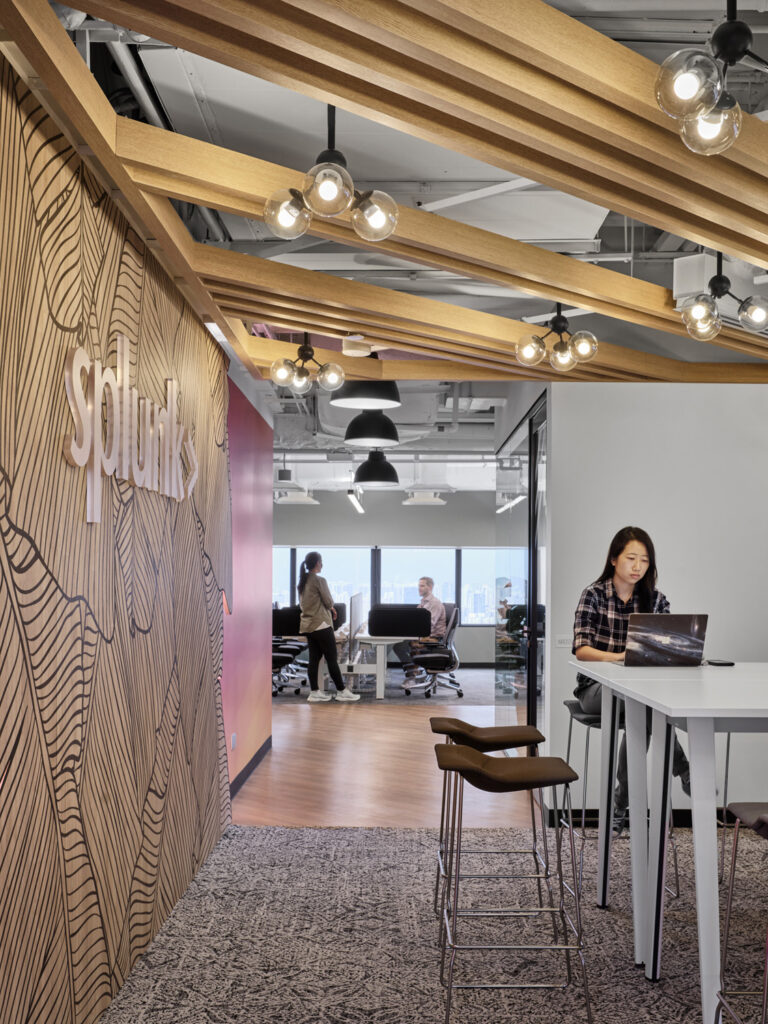
Singapore’s unique position as a global financial hub combined with its tropical climate creates distinctive challenges and opportunities for facility management professionals overseeing commercial properties. The city-state’s stringent regulatory environment, extreme weather conditions, and world-class infrastructure expectations demand sophisticated approaches to property maintenance that balance operational efficiency with environmental sustainability. This comprehensive guide explores Singapore-specific best practices that ensure commercial buildings operate at peak performance whilst meeting local regulatory requirements and international standards.
Understanding Singapore’s Facility Management Landscape
Facility management in Singapore operates within a highly regulated framework that emphasises building safety, environmental sustainability, and energy efficiency. The Building and Construction Authority (BCA) establishes comprehensive standards that influence every aspect of commercial property operations, from air-conditioning systems to waste management protocols.
The tropical climate presents unique challenges that distinguish Singapore’s property maintenance requirements from those in temperate regions. Year-round high humidity, intense solar radiation, and frequent rainfall create conditions that accelerate material degradation whilst demanding continuous climate control to maintain occupant comfort and equipment functionality.
Singapore’s status as a Smart Nation initiative leader has elevated expectations for technology integration in facility management, with building owners increasingly investing in Internet of Things (IoT) sensors, predictive analytics, and automated systems that optimise performance whilst reducing operational costs.
Regulatory Framework and Compliance Requirements
The BCA Green Mark scheme represents Singapore’s commitment to sustainable building operations, with facility management practices playing crucial roles in maintaining certification standards. Regular energy audits, water efficiency monitoring, and waste reduction programmes become essential compliance requirements rather than optional enhancements.
Fire safety regulations administered by the Singapore Civil Defence Force (SCDF) require sophisticated maintenance protocols for fire protection systems, emergency evacuation procedures, and regular safety inspections that must be meticulously documented and regularly updated.
Climate-Specific Facility Management Strategies
Singapore’s equatorial climate demands specialised facility management approaches that address the constant challenges of high humidity, temperature variations, and tropical weather patterns that can significantly impact building performance and occupant comfort.
HVAC System Optimisation for Tropical Conditions
Air-conditioning systems in Singapore commercial buildings typically account for 60-70% of total energy consumption, making HVAC optimisation critical for both cost management and environmental compliance. Advanced building management systems (BMS) enable real-time monitoring and adjustment of temperature, humidity, and air quality parameters based on occupancy patterns and external weather conditions.
Preventive maintenance protocols for HVAC systems must account for accelerated wear patterns caused by continuous operation in humid conditions. Regular filter replacements, coil cleaning, and refrigerant monitoring become essential to maintain efficiency whilst preventing mould growth and indoor air quality deterioration.
Variable refrigerant flow (VRF) systems have gained popularity in Singapore commercial properties due to their ability to provide precise zone control whilst achieving significant energy savings compared to traditional centralised systems. These systems require specialised maintenance expertise and regular performance monitoring to ensure optimal operation.
Humidity Control and Moisture Management
Property maintenance in Singapore must prioritise humidity control throughout building systems to prevent mould growth, material degradation, and indoor air quality issues that can impact tenant health and satisfaction. Dehumidification systems integrated with HVAC operations help maintain optimal humidity levels whilst managing energy consumption.
Building envelope maintenance becomes particularly critical in tropical climates, with regular inspections of seals, gaskets, and weatherstripping necessary to prevent moisture infiltration that can lead to structural damage and indoor air quality problems.
Advanced moisture detection systems utilising IoT sensors can provide early warning of water ingress or excessive humidity levels, enabling proactive intervention before problems escalate into costly repairs or tenant disruption.
Energy Efficiency and Sustainability Practices
Singapore’s commitment to environmental sustainability through initiatives like the Green Plan 2030 creates both regulatory requirements and market expectations for energy-efficient facility management practices that deliver measurable environmental benefits whilst controlling operational costs.
Building Energy Management Systems
Sophisticated energy management platforms integrated with building automation systems enable facility management teams to monitor consumption patterns, identify inefficiencies, and implement optimisation strategies that can reduce energy usage by 20-30% whilst maintaining occupant comfort and satisfaction.
Real-time energy monitoring combined with predictive analytics helps facility managers understand usage patterns and implement demand response strategies that minimise peak demand charges whilst supporting grid stability during high-demand periods.
LED lighting systems integrated with occupancy sensors and daylight harvesting capabilities provide significant energy savings whilst improving lighting quality and reducing maintenance requirements compared to traditional fluorescent systems.
Water Conservation and Management
Singapore’s water scarcity challenges make water conservation a critical component of sustainable property maintenance practices. Greywater recycling systems, rainwater harvesting, and efficient irrigation systems can significantly reduce municipal water consumption whilst supporting building sustainability certifications.
Smart water meters and leak detection systems provide immediate alerts about unusual consumption patterns or system failures, enabling rapid response that prevents waste and potential property damage from undetected leaks.
Cooling tower water treatment and management require particular attention in Singapore’s climate, with regular monitoring and maintenance necessary to prevent legionella growth whilst optimising system efficiency and water usage.
Technology Integration and Smart Building Solutions
Singapore’s Smart Nation initiatives have created favourable conditions for advanced technology adoption in facility management, with building owners increasingly investing in intelligent systems that improve operational efficiency whilst providing valuable data for decision-making.
IoT Sensors and Predictive Maintenance
Internet of Things sensors throughout building systems monitor equipment performance, environmental conditions, and occupancy patterns, providing data that enables predictive maintenance strategies that reduce emergency repairs whilst extending equipment lifecycles.
Machine learning algorithms analyse sensor data to identify patterns that indicate potential equipment failures, enabling maintenance teams to schedule interventions during optimal times whilst avoiding emergency repairs that disrupt tenant operations.
Advanced building analytics platforms integrate data from multiple systems to provide comprehensive insights into building performance, energy consumption, and maintenance needs that support both operational efficiency and regulatory compliance reporting.
Mobile Technology and Field Service Management
Mobile applications enable facility management teams to access work orders, building documentation, and system information whilst conducting inspections or maintenance activities throughout commercial properties. These tools improve response times whilst ensuring accurate documentation of all maintenance activities.
Digital asset management systems maintain comprehensive records of equipment specifications, maintenance histories, and warranty information, supporting informed decision-making about repairs, replacements, and upgrade investments.
QR codes and RFID tags on equipment enable rapid identification and access to maintenance records, instruction manuals, and spare parts information that streamline maintenance procedures whilst reducing errors and improving safety.
Regulatory Compliance and Safety Management
Singapore’s stringent safety and regulatory requirements demand systematic approaches to compliance management that ensure commercial buildings meet all applicable standards whilst maintaining comprehensive documentation for regulatory inspections and audits.
Fire Safety System Maintenance
Fire protection systems require regular testing, maintenance, and documentation according to SCDF regulations, with facility management teams responsible for ensuring sprinkler systems, fire alarms, emergency lighting, and evacuation systems remain fully operational at all times.
Regular fire safety inspections and drills must be conducted and documented, with any deficiencies immediately addressed to maintain compliance and ensure occupant safety. Maintenance records must be meticulously maintained for regulatory review and insurance requirements.
Emergency response procedures must be regularly updated and communicated to all building occupants, with facility management teams coordinating with building security and local emergency services to ensure effective response capabilities.
Building Code Compliance and Inspections
Property maintenance programmes must ensure ongoing compliance with BCA building codes and standards through regular inspections, testing, and maintenance of structural elements, safety systems, and building services that support occupant safety and comfort.
Lift maintenance and inspection requirements are particularly stringent in Singapore, with certified technicians required to conduct regular safety inspections and maintenance procedures that are documented and reported to regulatory authorities.
Electrical system inspections and maintenance must comply with Singapore Standards (SS) requirements, with qualified electricians conducting regular testing and maintenance of distribution systems, emergency power systems, and grounding systems.
Tenant Relations and Service Excellence
Facility management in Singapore’s competitive commercial property market demands exceptional service delivery that meets tenant expectations whilst supporting property values and occupancy rates through proactive maintenance and responsive service provision.
Proactive Communication and Service Delivery
Regular communication with tenants about planned maintenance activities, building improvements, and service disruptions helps maintain positive relationships whilst minimising business interruptions through careful scheduling and coordination.
Digital tenant portals provide convenient access to maintenance request submission, building information, and service updates, improving tenant satisfaction whilst streamlining service delivery and documentation processes.
Regular tenant satisfaction surveys and feedback collection help facility management teams identify improvement opportunities whilst demonstrating commitment to service excellence that supports tenant retention and property reputation.
Emergency Response and Business Continuity
Comprehensive emergency response procedures must address various scenarios including fire, flooding, power failures, and security incidents, with facility management teams trained and equipped to coordinate effective responses that prioritise occupant safety.
Backup power systems and redundant building services help ensure business continuity during utility interruptions or equipment failures, with regular testing and maintenance necessary to ensure reliable operation when needed.
Business continuity planning should consider Singapore’s vulnerability to regional disruptions and extreme weather events, with facility management teams prepared to implement alternative service delivery methods whilst maintaining essential building operations.
Vendor Management and Service Partnerships
Effective facility management in Singapore requires strategic partnerships with qualified service providers who understand local regulations, climate challenges, and service expectations that define successful commercial property operations.
Contractor Selection and Quality Management
Contractor selection processes should evaluate technical qualifications, regulatory compliance, insurance coverage, and track record of successful project delivery in Singapore’s unique operating environment.
Regular performance monitoring and quality audits ensure service partners maintain required standards whilst identifying opportunities for improvement or service enhancement that benefit both building operations and tenant satisfaction.
Vendor consolidation strategies can improve service coordination whilst achieving cost efficiencies through strategic partnerships with multi-service providers who demonstrate expertise across various property maintenance disciplines.
Service Level Agreements and Performance Metrics
Clear service level agreements (SLAs) establish expectations for response times, quality standards, and performance metrics that ensure consistent service delivery whilst providing frameworks for performance evaluation and improvement.
Key performance indicators (KPIs) should include response times, first-call resolution rates, tenant satisfaction scores, and regulatory compliance metrics that provide comprehensive assessment of service provider performance.
Regular contract reviews and performance assessments help ensure service partnerships continue delivering value whilst adapting to changing building needs, regulatory requirements, and market conditions.
Cost Management and Budget Optimisation
Strategic facility management requires sophisticated cost management approaches that balance service quality with operational efficiency whilst supporting property investment objectives and tenant value propositions.
Predictive Budgeting and Cost Control
Advanced analytics and historical performance data enable more accurate budget forecasting whilst identifying cost trends and optimisation opportunities that support long-term financial planning and investment decision-making.
Energy monitoring and benchmarking against industry standards help identify efficiency opportunities whilst supporting sustainability reporting requirements that increasingly influence property values and tenant selection decisions.
Preventive maintenance programmes typically reduce total maintenance costs by 20-30% compared to reactive approaches whilst extending equipment lifecycles and reducing emergency service requirements that disrupt tenant operations.
Technology Investment and ROI Analysis
Strategic technology investments in building automation, energy management, and predictive maintenance systems require careful ROI analysis that considers operational savings, tenant satisfaction improvements, and regulatory compliance benefits.
Equipment lifecycle management strategies optimise replacement timing based on performance data, maintenance costs, and energy efficiency considerations that support both operational efficiency and environmental objectives.
Future Trends and Innovation
Singapore’s facility management industry continues evolving rapidly, with emerging technologies and sustainability requirements creating new opportunities for operational improvement and competitive differentiation.
Artificial Intelligence and Machine Learning
AI-powered building optimisation systems promise even greater efficiency gains through advanced pattern recognition and automated system adjustments that continuously improve performance whilst reducing energy consumption and operational costs.
Machine learning algorithms will increasingly enable personalised environmental controls that adapt to individual occupant preferences whilst maintaining overall system efficiency and regulatory compliance.
Sustainable Technology Integration
Green technology adoption including solar panels, energy storage systems, and electric vehicle charging infrastructure will require new facility management competencies whilst supporting Singapore’s sustainability objectives.
Carbon monitoring and reporting systems will become essential tools for demonstrating environmental performance whilst supporting regulatory compliance and tenant sustainability requirements.
Conclusion: Excellence in Singapore Facility Management
Facility management in Singapore demands sophisticated approaches that address unique climate challenges whilst meeting world-class service expectations and stringent regulatory requirements. Success requires strategic integration of advanced technology, sustainable practices, and expert service delivery that supports both property performance and tenant satisfaction.
The tropical climate, regulatory framework, and technology infrastructure create distinctive requirements that demand specialised expertise and strategic partnerships. Property maintenance programmes must balance proactive system care with responsive service delivery whilst maintaining cost efficiency and environmental sustainability.
Excellence in Singapore’s facility management sector requires continuous adaptation to evolving technologies, regulations, and market expectations whilst maintaining unwavering focus on safety, sustainability, and service quality that defines successful commercial property operations in this dynamic market.
Sources and References
This analysis draws from Singapore government agencies, industry organisations, and leading facility management authorities:
Government and Regulatory Sources
- Building and Construction Authority (BCA) Singapore
- Singapore Civil Defence Force (SCDF)
- PUB Singapore’s National Water Agency
- Energy Market Authority (EMA)
Professional Organisations and Standards
- Singapore Institute of Building Services Engineers (SIBSE)
- International Facility Management Association Singapore
- Singapore Green Building Council
- Real Estate Developers’ Association of Singapore (REDAS)
Technology and Innovation Sources
- Smart Nation Singapore Initiative
- Singapore University of Technology and Design (SUTD)
- Nanyang Technological University (NTU) Building Research
Research compiled and analysed as of September 2025. Singapore’s regulatory environment and technology landscape continue evolving rapidly. For current compliance requirements and best practice guidance, consult with certified facility management professionals and Singapore regulatory authorities.
